Sure, math and music may be universal languages, but you can’t get un-lost using an equation, and you can’t play your ukulele to get out of a sketchy situation—unless you’re in High School Music 4. An even greater reason to rehearse new words and phrases is that it shows respect and appreciation for culture and builds a connection with locals on a higher level. The last thing I ever want to do when I’m travelling is expect locals to speak my language when I am in their country—that doesn’t make sense! Learning a bit of the language wherever you travel is essential for smoother, more personable communication and conversations.
This article shares why you should learn a bit of the language when you travel while also revealing communication tips and resources at the bottom of the post!
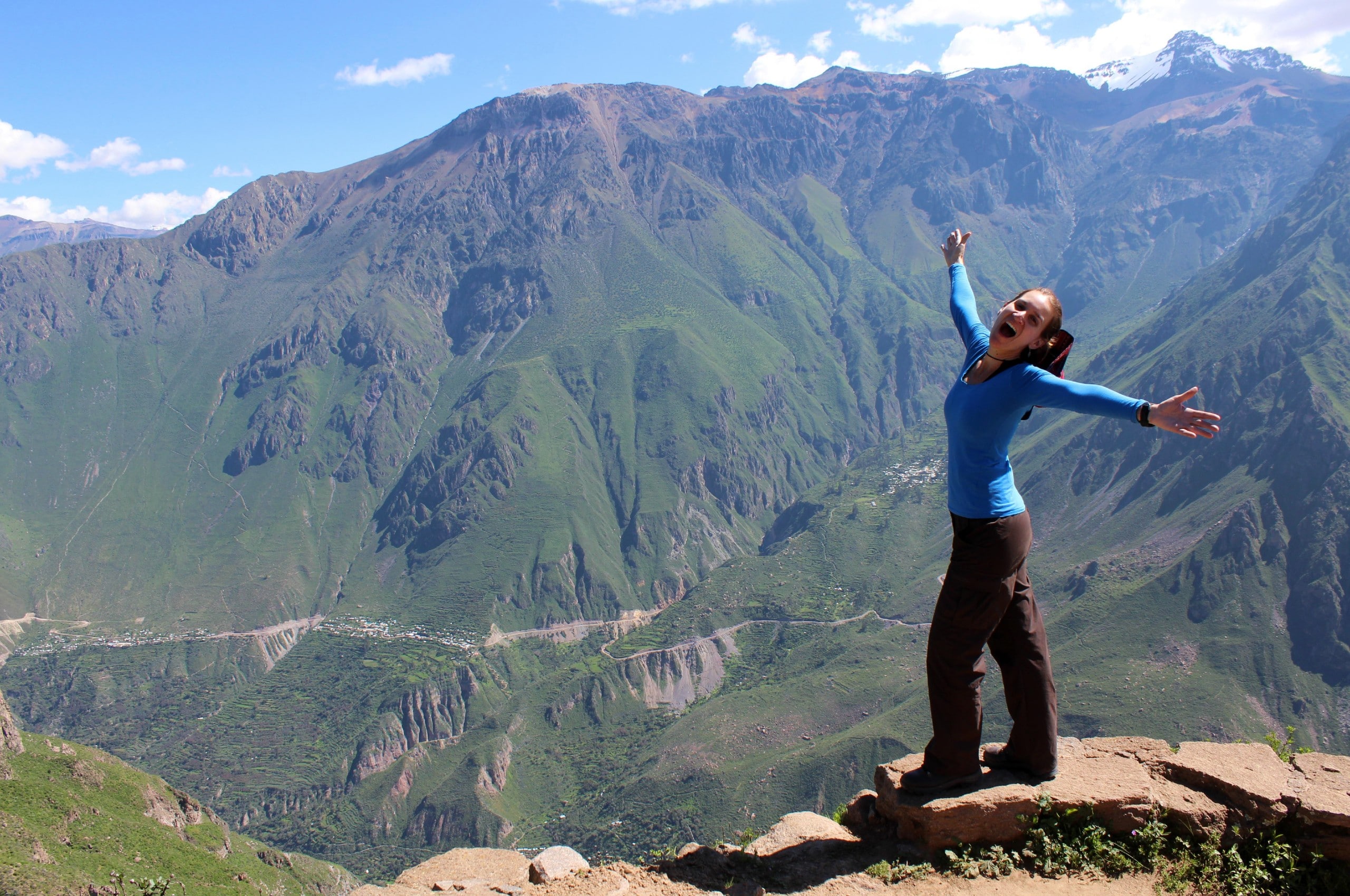
Communication, of course!
You’re wandering a market amid swirls of fish smells, and your lightweight clothes stick to the layer of sweat drenching your skin. You start to feel dizzy and have a sudden urge to snuggle under a bundle of blankets. But first, you decide to leave the concoction of smells sprawling the market and head to a pharmacy.
You try to explain what’s going on with you at the pharmacy. You show you feel dizzy with actions, place your hand on your forehead to signal a fever, and then toss your hands in the air to highlight that you don’t know what to do. The pharmacist tilts their head and grabs a pile of pills, and tosses them on the counter. And guess what? They are all in a different language.
So you buy them all and head back to your hostel, where you can use the WiFi to look up what the words mean before taking one.
But, it turns out the attempted hand signal translation fell flat because none of the meds will help you out. You want to speak to the hostel employee, but the English-speaking one has gone to the market, and now you don’t know whether to hope for the best and let your illness run its course or find it in you to walk back to the store with your newly translated words while you feel like, well, dying (for lack of a better word). What a mess!
Our point? Communication is key. It can save you from getting lost and sticky situations, protect you when you’re under the weather, help you find the bathroom, hinder you from munching on foods you can’t eat (gluten and nuts, anyone?), and the list goes on.
However, sometimes words and phrases can mean something different from the literal translation. For example, I ordered a meal in Thailand and said, “pet nit noi,” which means little spice. When, in Koh Phangan, at this particular restaurant, it was still crazy spicey for a girl from Canada but probably pet nit noi for a local. It’s always fun figuring out how languages and general customs of a culture intertwine—it never hurts to add some flavour, some extra spice to your adventures, right?
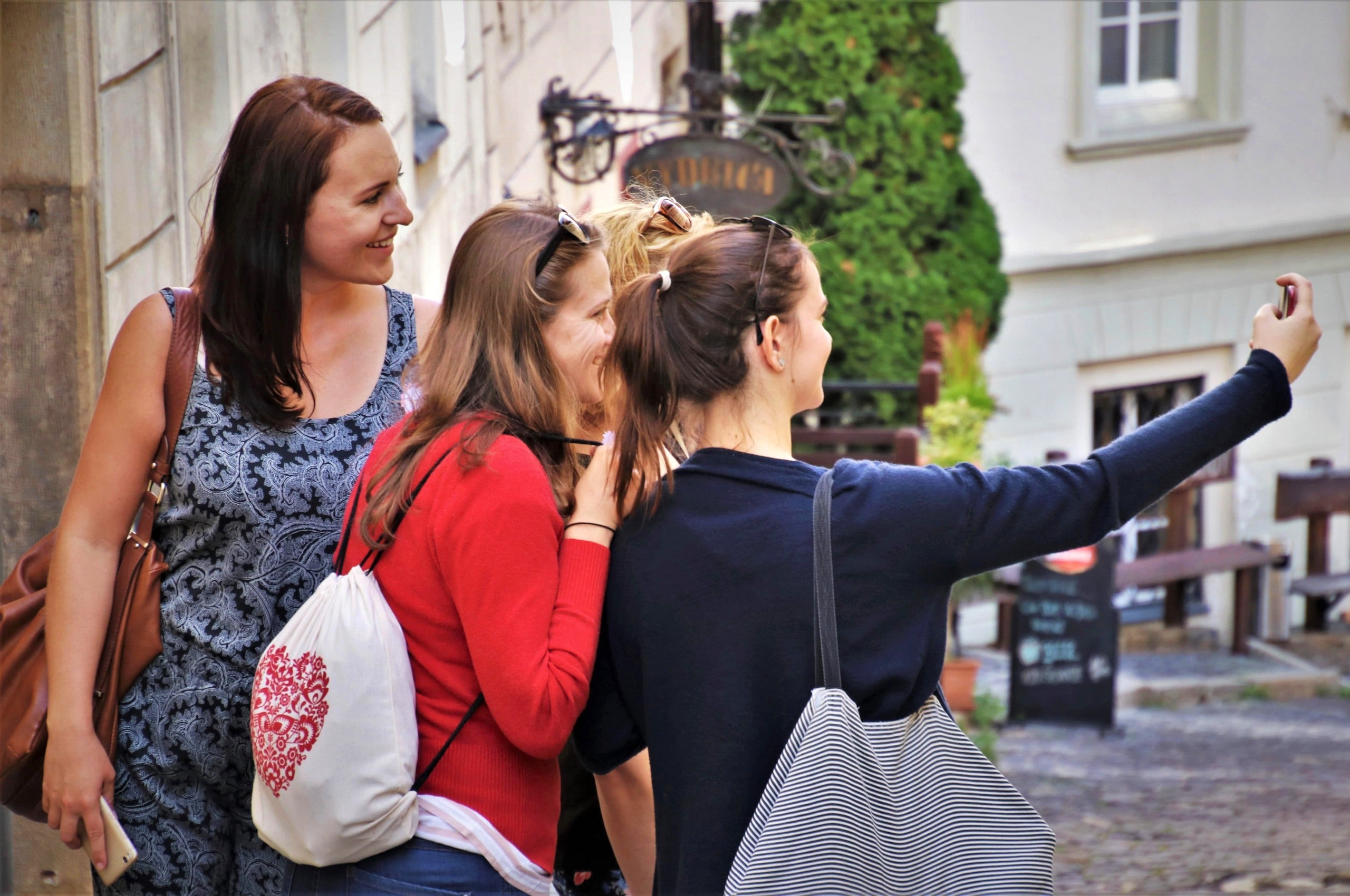
Connect with locals and learn their culture
Why do a lot of us travel to new places? To revel in different cultures and understand that unique customs, means of living, and epic architecture and scenery span the globe. Learning a bit of the language can propel an immersion into the culture or maybe even lead you to secret gems only the locals know.
I remember walking the backroads of Morogoro in Tanzania, checking out different shops along the way, until we found a bustling market atmosphere stretching up a hill, inching closer to the shadow of the mountain soaring in the backdrop. After checking out some shops, we met Mimi (it turns out Mimi means “me” in her language—official spelling: unknown).
Mimi runs a local bar and serves homemade alcohol made from coconuts. We did not speak her language, and she did not speak English, but we had a blast communicating with our hands, expressions, and random noises.
Our friendship prompted us to learn more of the local language of that region and some key phrases to get to know her more. So every time we went back, we would share a new word with her. (We also randomly knew all the names of the body parts after helping out with an ESL after-school program, so she was impressed by that but did not help the conversation.)
However, the point is that learning some phrases creates a connection with the locals. It shows that you aren’t here just to explore the prettiest parts and then leave, but that you respect their culture and want to know the people and their stories.
Plus, learning some phrases and key terms (probably not body parts) eliminates the expectation that English is the only language. It’s not. Mother tongues are an integral part of cultures around the world. So while English is exploding and becoming more widespread, especially among school children, this doesn’t excuse us from getting to know the locals via their language.
Some of my favourite travelling memories stem from chatting with locals and exchanging language phrases, whether we are at a tiny shop away from the crowded streets or hitching a ride to a more tourist-centric destination. It’s a great way to connect with the locals and the culture!
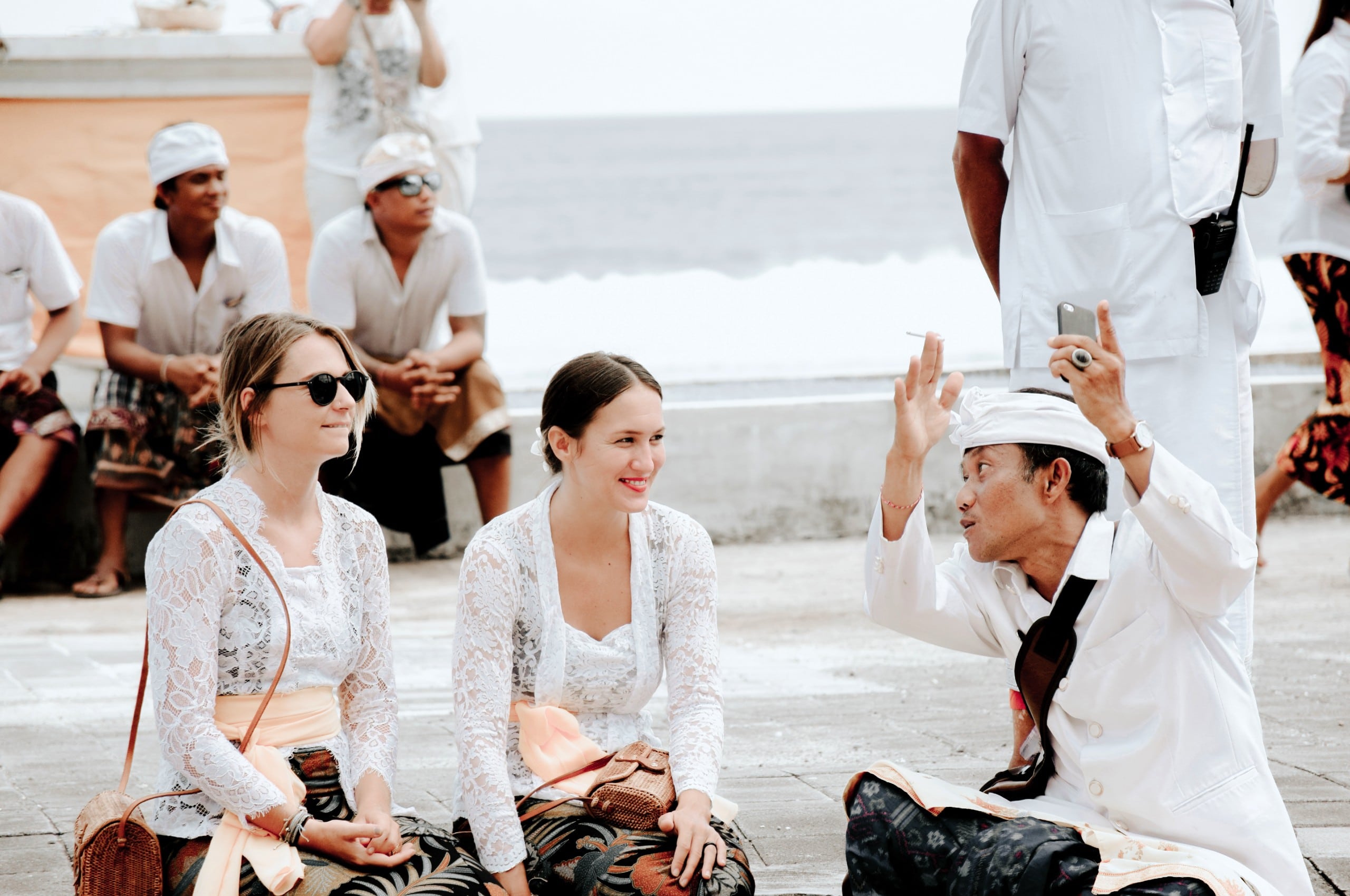
Resources and tips to help you communicate
You might find some of these resources and tips helpful for communicating when in a new country:
- Number one: Learn simple phrases before you go! Some sources to help you learn these, other than Google, are Speechling, iTalkie, and Duolingo. It may also help to buy books that you can carry with you.
- Number two: Learn how to say you don’t speak their language!
- If you’re gluten-free, bring this card to a restaurant to show you can’t eat gluten! I also like to look up “wheat flour” before I go somewhere. Or I go for rice-based or dishes I know to be 100% safe if I don’t want to risk it. Thankfully, most countries outside of the western world don’t use a lot of wheat flour (at least that’s what I’ve found so far!).
- Google Translate can be helpful while you’re there and urgently need to communicate something if you have usable data.
- Save pictures of what you want to see and what you like before you go somewhere, such as a snap of the beach you want to see or the food you want to eat.
- Be kind and avoid getting outwardly frustrated!
- Try to figure out how to get from Point A to Point B before leaving your hostel—jot down the transit names, etc. And like we mentioned above, save pictures of what you want to see because, as most of us know, it’s common for day trips not to go as planned when you’re exploring a new place.
Learning a bit of the language when you travel benefits you and the locals. It’s something I want to focus on during my future expeditions abroad; what about you? Even if I’m at a resort, surrounded by tourists, I would still like to get to know the locals working there, and one of the best ways to initially connect human-to-human, stranger-to-stranger when abroad? Ask about their language.
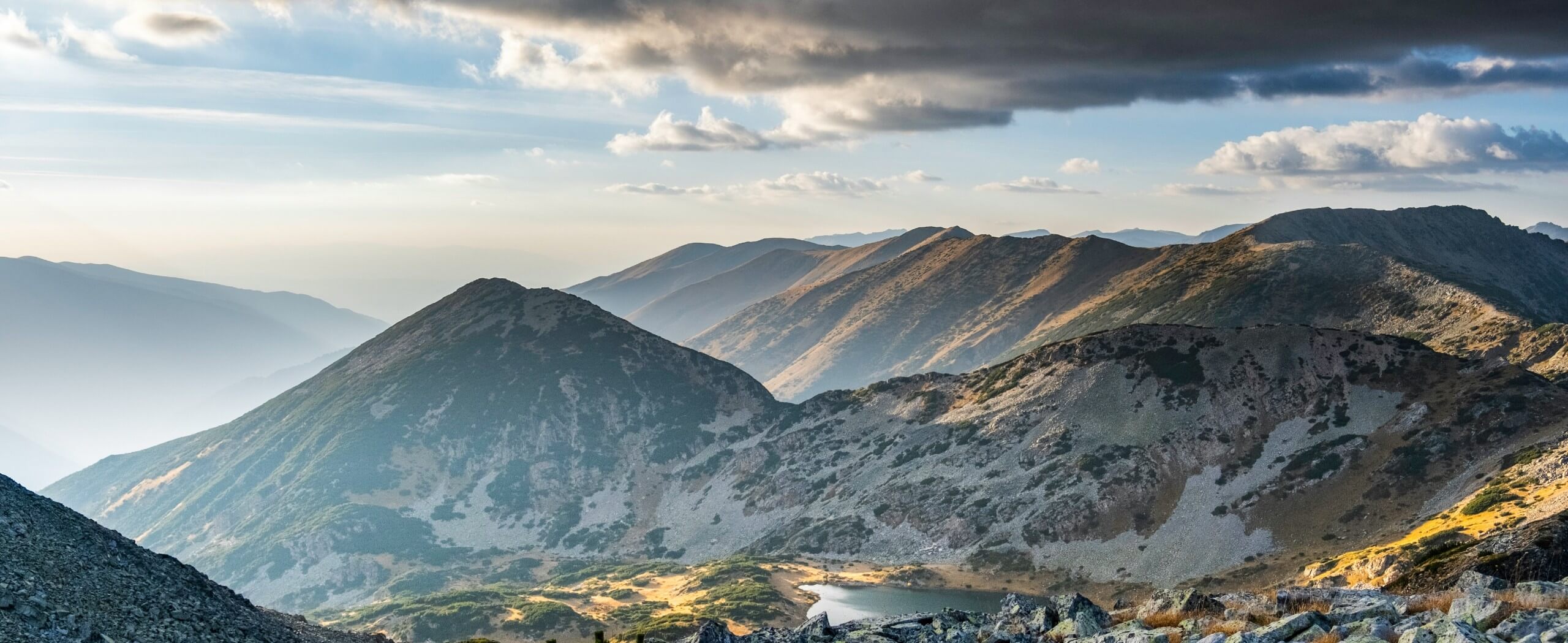

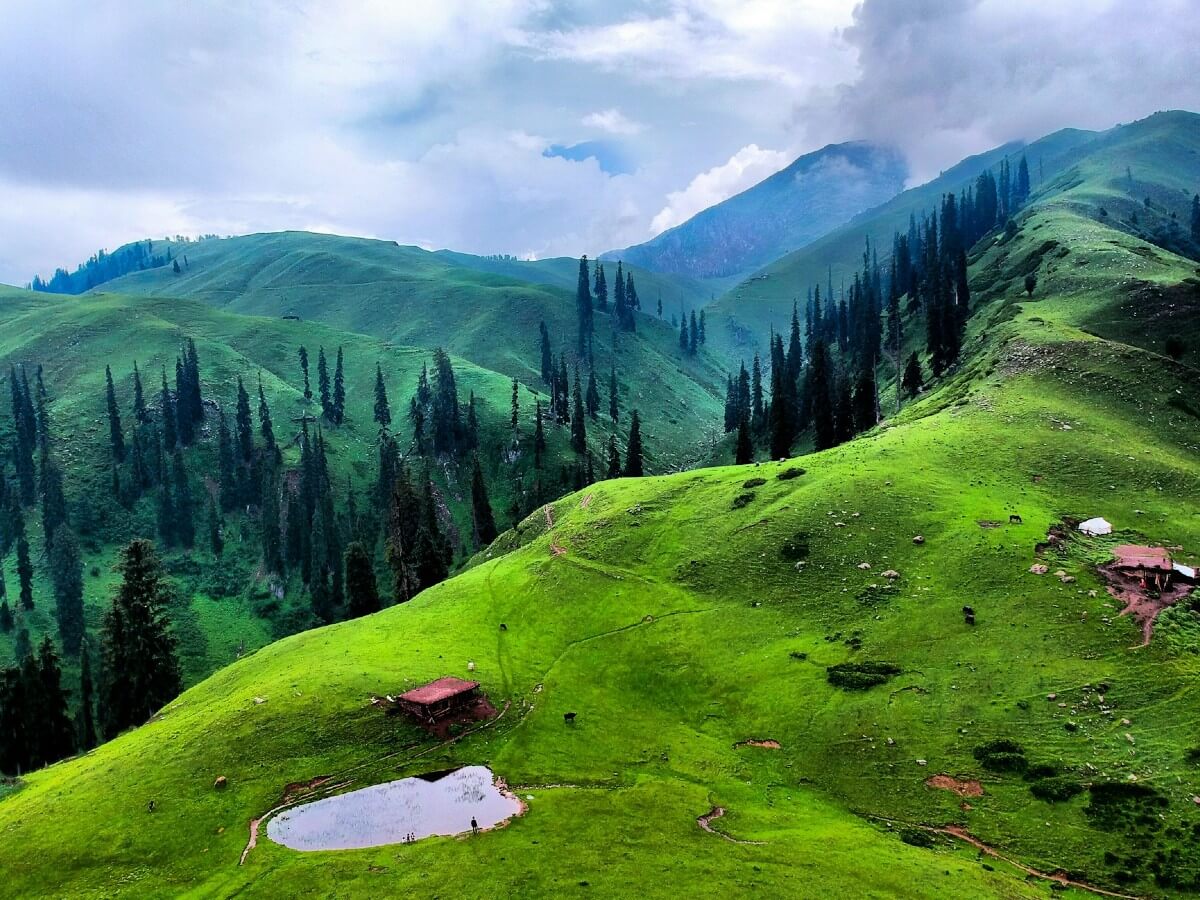
Comments